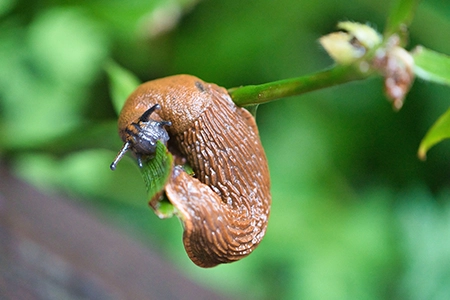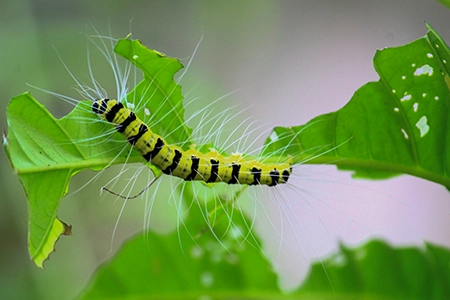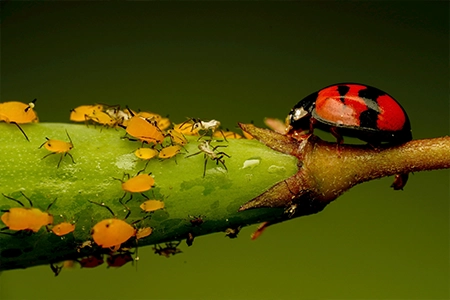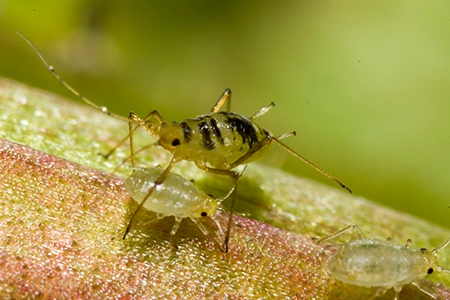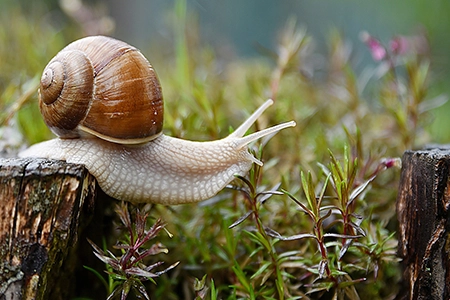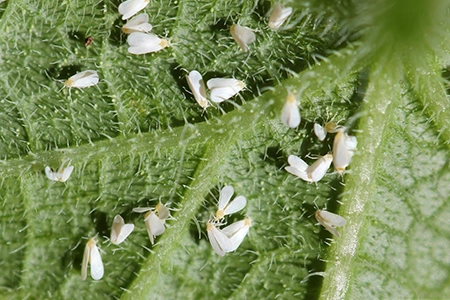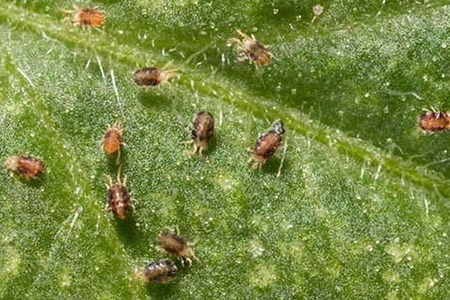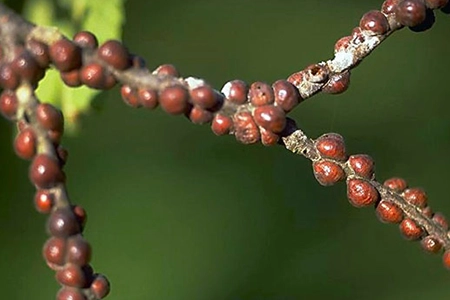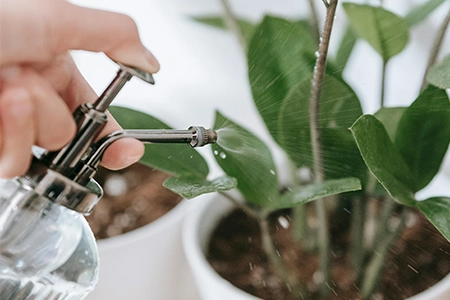Introduction
Unwanted critters infiltrating your garden can swiftly transform a flourishing sanctuary into a battleground. However, there’s no need to despair! Our arsenal of proven pest control solutions empowers you to evict these trespassers and restore your verdant haven to its former glory. In this comprehensive guide, we’ll not only emphasise the critical significance of pest management but also shed light on the repercussions of overlooking it.
Additionally, we’ll furnish you with an array of eco-friendly pest control solutions tailored to combat common garden nuisances such as aphids, slugs, snails, white flies, spider mites, and scale insects. With our expertise and eco-conscious approach, you’ll be equipped to safeguard your garden’s vitality and tranquillity against the onslaught of pests.
The Importance of Pest Control Solutions
Pest management stands as a cornerstone in nurturing a flourishing and productive garden ecosystem. Through the proactive deployment of pest control solutions, gardeners wield a powerful shield against the threats posed by invasive pests. By promptly addressing pest issues, they can shield their precious plants from potential damage and diseases, thereby fostering an environment conducive to optimal growth and yield.
Moreover, the implementation of effective pest management practices serves to safeguard the delicate equilibrium of ecosystems thriving within the garden’s confines. By curbing pest populations through strategic pest control solutions, gardeners not only foster biodiversity but also champion sustainability, ensuring that their green sanctuaries thrive for generations to come.
Consequences of Poor Pest Management
Neglecting proper pest management can result in dire consequences for the well-being of your garden sanctuary. Insects such as aphids, slugs, and white flies possess the uncanny ability to reproduce rapidly, wreaking havoc on plants and sapping them of their vitality. Left unchecked, these infestations can spiral out of control, leading to detrimental effects like stunted growth, wilting foliage, and even the demise of cherished plants.
Moreover, the unchecked proliferation of pest populations not only attracts natural predators but also facilitates the spread of diseases, further compounding the issue and jeopardising the overall health of your garden oasis. However, by swiftly implementing targeted pest control solutions, gardeners can thwart these threats and safeguard their green havens from potential devastation.
Misunderstood Pest Control Solutions
One common misconception surrounding pest control solutions is the belief that they will indiscriminately harm both undesirable pests and beneficial wildlife or insects in the garden. However, this is not necessarily the case. With careful consideration and selection of the appropriate pest management methods, it is possible to effectively target pests while minimising harm to desired wildlife and beneficial insects.
Many modern pest control solutions are designed to specifically target the pests causing damage to garden plants, leaving non-target organisms unharmed. For example, eco-friendly insecticidal soaps or botanical insecticides target pests such as aphids, whiteflies, or spider mites while posing minimal risk to beneficial insects like bees or ladybugs. Similarly, introducing natural predators or employing physical barriers can effectively control pest populations without harming other organisms.
Furthermore, adopting integrated pest management (IPM) practices can help strike a balance between pest control and conservation of beneficial wildlife. IPM involves a combination of preventive measures, cultural practices, biological controls, and, if necessary, targeted pesticide applications. By integrating multiple strategies and utilising pest-specific solutions, gardeners can effectively manage pests while minimising negative impacts on desirable wildlife and insects.
Ultimately, the key lies in choosing the right pest control methods and implementing them judiciously. By doing so, gardeners can protect their plants from damage while preserving the delicate balance of ecosystems within the garden, ensuring a healthy and thriving environment for all inhabitants.
Aphids: Petite Pests
Aphids, commonly known as plant lice, pose a significant threat to garden plants, particularly in the spring and early summer months. These small, soft-bodied insects come in an array of colours, including green, black, and pink, and are often found clustered on the undersides of leaves or tender shoots. Their voracious appetite for plant sap and rapid reproduction can quickly lead to widespread damage if left unchecked.
To combat aphids in an eco-friendly manner, gardeners can employ several pest control solutions. One approach is introducing natural predators such as ladybugs or lacewings, which feed on aphids and help keep their populations in check. Additionally, gardeners can create a homemade insecticidal soap using mild dish soap and water.
This solution can be sprayed directly onto aphid-infested plants, effectively suffocating the pests without harming beneficial insects or the environment. By implementing these eco-friendly pest control solutions, gardeners can effectively manage aphid infestations and protect their plants from damage.
Slugs and Snails: Slimy Saboteurs
Slugs and snails are nocturnal pests with soft bodies and voracious appetites for tender plant foliage. They thrive in moist environments and are most active during spring and autumn, emerging after rainfall or during humid weather. These pests leave behind characteristic slime trails and can quickly decimate seedlings and young plants.
To deter slugs and snails in an eco-friendly manner, gardeners can employ various strategies. Physical barriers such as copper tape or diatomaceous earth can be effective in preventing these pests from reaching vulnerable plants. Copper tape creates a barrier that slugs and snails avoid due to a reaction with their mucus, while diatomaceous earth, a powder made from fossilised algae, acts as a desiccant that absorbs moisture from the pests’ bodies, ultimately leading to their dehydration.
Another eco-friendly approach is to encourage natural predators like frogs, toads, and birds to frequent the garden. These creatures feed on slugs and snails, helping to keep their populations in check without the need for chemical interventions. Creating habitats such as ponds for frogs and toads or providing bird feeders and nesting boxes can attract these beneficial predators to the garden, forming a natural and sustainable pest control solution.
White Flies: Tiny Terrors
White flies are tiny, moth-like insects with powdery white wings, often found congregating on the undersides of leaves. They feed on plant sap, causing yellowing, wilting, and premature leaf drop. White flies thrive in warm, humid conditions and can become problematic during summer months, particularly in greenhouse environments.
To control white flies without harming beneficial insects, gardeners can employ several eco-friendly methods. One option is to use insecticidal soap or neem oil spray on affected plants. These natural solutions effectively suffocate the white flies upon contact while being safe for other insects and the environment.
Additionally, introducing natural predators like parasitic wasps can help manage white fly populations. These tiny wasps lay their eggs inside white fly nymphs, ultimately reducing their numbers by parasitising them. This biological control method provides a sustainable and chemical-free approach to white fly management, contributing to the overall health and balance of the garden ecosystem.
Spider Mites: Invisible Intruders
Spider mites are minuscule pests that feed on plant sap, leaving behind stippled, discoloured foliage and fine webbing. These arachnids thrive in hot, dry conditions and are most active during summer months, although they can be present year-round in indoor environments.
To combat spider mites naturally and effectively, gardeners can employ a variety of eco-friendly pest control solutions.
One approach is to increase humidity levels around affected plants by misting them regularly or placing a humidifier nearby. Spider mites prefer dry environments, so raising humidity can deter their activity and reproduction.
Another option is to introduce predatory mites or ladybugs to the garden. These natural predators feed on spider mites, helping to keep their populations in check without the need for chemical pesticides. By harnessing the power of biological control, gardeners can maintain a healthy balance of insect populations while minimising damage to plants.
Scale Insects: Stubborn Sap Suckers
Scale insects are small, immobile pests that resemble tiny bumps or scales on plant stems and leaves. They feed on plant sap, weakening the host plant and causing yellowing, wilting, and dieback. Scale insects are prevalent year-round, although they may become more noticeable during periods of active growth.
When dealing with scale insects, employing eco-friendly pest control solutions is essential for effectively managing infestations while minimising harm to beneficial insects and wildlife. One approach is to prune heavily infested plant parts and dispose of them properly to prevent the spread of scale insects to healthy plants. Removing heavily infested branches can also improve air circulation and sunlight exposure, creating less favourable conditions for scale insects to thrive.
Additionally, using a horticultural oil spray during the dormant season can help suffocate scale insects and their eggs, effectively reducing their populations. These oils work by coating the pests and blocking their respiratory systems, leading to their demise without the need for harsh chemicals. By implementing these pest control solutions, gardeners can effectively manage scale insect infestations while promoting a healthy and thriving garden ecosystem.
Your Partner in Pest Control Solutions
At NGS, we understand the challenges posed by garden pests and are here to help every step of the way. Our team of experts possesses a wealth of knowledge and experience in dealing with a wide range of pest issues, from common nuisances like aphids and slugs to more elusive pests like white flies, spider mites, and scale insects. We recognize that every garden is unique, which is why we offer personalised advice and tailored solutions to address your specific pest management needs.
When you reach out to NGS, you can expect dedicated support and guidance from our knowledgeable team. We’ll take the time to assess your situation thoroughly, considering factors such as plant species, garden layout, and environmental conditions to develop a comprehensive pest management strategy that works for you. Whether you prefer eco-friendly solutions, organic methods, or traditional pest control techniques, we have the expertise to deliver results while minimising harm to beneficial insects and wildlife.
Don’t let unwanted critters wreak havoc on your garden any longer. Take proactive steps to protect your green space and preserve its beauty with the help of NGS. Reach out to us today, and let’s work together to reclaim your garden and ensure it thrives for years to come!
To find out more about how we can create garden space with effective pest control solutions in place get in touch via the Contact Us page!
Conclusion
With our comprehensive guide to pest management and eco-friendly solutions for common garden pests, you’re equipped to tackle unwanted critters and safeguard your garden’s health and vitality. By prioritising pest management, you can promote a thriving ecosystem, ensuring that your garden remains a vibrant and flourishing oasis for years to come. Remember, at NGS, we’re here to support you every step of the way on your gardening journey.

